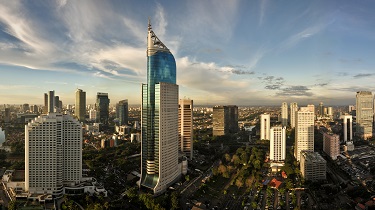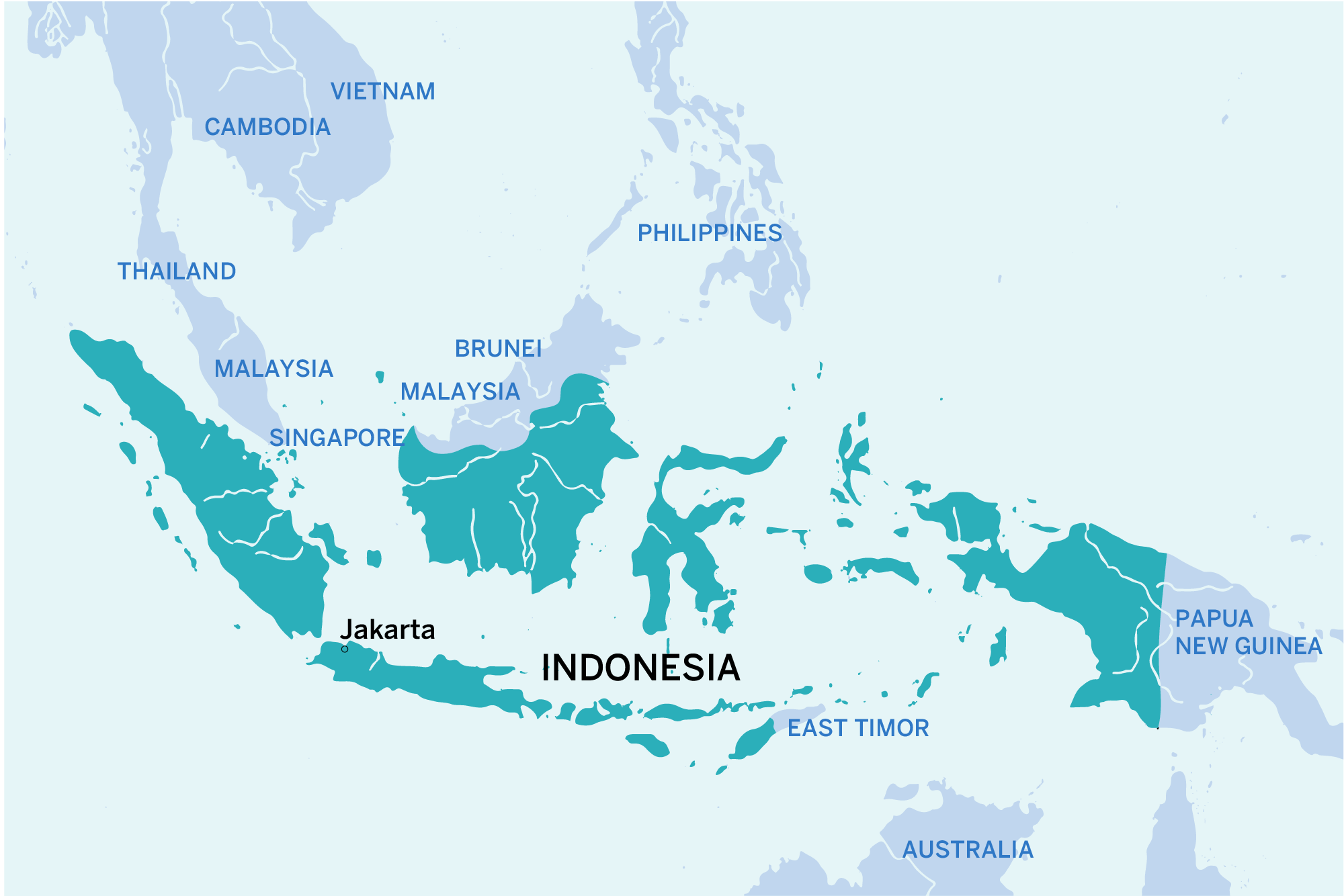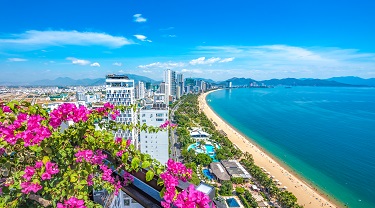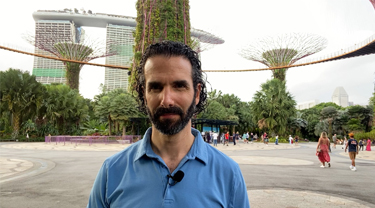
Market of opportunity: Unleashing Indonesia’s potential
Author details
Julie Beun
Contributing international trade writer
In this article:
For years, Indonesia has been the quiet giant amidst colossal Indo-Pacific economies.
Yet, with 270 million people, US$1.4 trillion in gross domestic product (GDP) and a growing middle class, the island nation is rapidly stepping into an even more significant role in global trade.
And Canadian exporters can be at the heart of the action, through Export Development Canada’s (EDC) newly opened regional office, says Sean Emmond, EDC’s chief representative for Indonesia.
“There’s a massive opportunity for Canadian companies in Indonesia. The challenge is it’s a long way away and a different language, but the opportunity is monstrous. There’s a lot of scope for incredible growth for Canadian exporters and investors,” says Emmond.
Once a hub for Canada’s traditional exports, like commodities, Indonesia’s import patterns are evolving. EDC sees opportunities for Canadian exporters in a range of sectors, including cleantech, packaged agri-food products and investments aimed at addressing the country’s significant infrastructure gap.
“Indonesia is a frontier market. You have a country growing its GDP at 5% every year for a decade. It’s the fourth most populous country in the world. By 2050, it’ll be the world’s fourth-largest economy. Anywhere else in the world, it’s a superstar, but it’s overshadowed by India and China, which are bigger and growing faster,” says Emmond.

Ranked as the world’s 16th-largest economy by nominal GDP, and classified as a newly industrialized country, Indonesia’s economic growth engine is fuelled by a young and growing population, as well as a swelling middle class that now represents 25% of the country’s population.
Indonesia is Canada’s largest Southeast Asia trading partner and a key member of the Association of Southeast Asian Nations (ASEAN). As a group, ASEAN is Canada’s sixth-largest trading partner, representing more than $40 billion in trade (2022).
Opportunities
Canadian exports to Indonesia currently sit at more than $3 billion annually. An EDC report entitled, Markets of opportunity for Canadian exporters, estimated average annual exports to grow substantially between now and 2030, and up to $11 billion by 2050, potentially placing it as one of Canada’s Top 10 export markets. By 2040, Indo-Pacific economies are predicted to make up 50% of global GDP and about 40% of the world’s consumption.
As the world’s largest archipelagic state made of 17,000 islands strewn between Malaysia, Papua New Guinea and Australia’s far north, Indonesia is increasingly vulnerable to extreme weather events such as severe rainfall, flooding and storms. Its government predicts that rising sea levels and land subsidence of up to 17 centimetres a year from depleted groundwater will result in one-third of the capital, Jakarta, being underwater by 2050.
As a result, the country has a vested interest in turning away from extractive resources towards sustainable energy, says Yuliya Kovalenko, manager in Environmental, Social and Governance (ESG) for EDC.
“It’s a vastly populated, fast-growing market and there are opportunities in cleantech because the Indonesian government is serious about investing in the future,” she says.
The country’s sprawling network of islands has long been a barrier to highly developed infrastructure in terms of airports, ports, roads and shipping. While Canada has a long history of supporting airplane exports to Indonesia, real opportunity now exists for institutional investors eyeing infrastructure project investments, including under its current plan to move its capital 2,000 kilometres to the northeast.
Located on one of the world’s major trade routes, Indonesia presents opportunities for Canadian companies wanting to diversify from traditional European Union (EU) and United States (U.S.) markets. Traditionally, Indonesia is the second-largest export destination for Canadian wheat, but there’s also opportunity for expanding into processed and branded Canadian food products.
“EDC has seen the benefit of bringing Canadian food products onto the shelves of retailers in distant countries. And in Indonesia, there’s an emerging middle class developing a taste for high quality imported food,” says Emmond.
Key export sectors for Canada include energy transition, proteins, telecoms, aerospace, infrastructure, manufactured goods, and the automotive and transportation industries.
Other areas of opportunity
- With nearly 200 million active internet users and a burgeoning middle class, Indonesian technology and innovation sectors are thriving and attracting international backing. Some subsets of the digital economy such as artificial intelligence (AI) are growing rapidly: Several AI Indonesian startups have earned “unicorn” status with valuations of more than $1 billion. AI is expected to contribute $366 billion to the country’s economy by 2030.
- The export of digital services also offers opportunities for Canadian companies whose tech supports e-commerce, ride-sharing and mobile payment platforms.
- Canadian agri-food exports, particularly peas, soybean, wheat, and seeds, are already significant, but have room to grow.
- Indonesia’s raw mineral assets such as lithium and nickel make it a desirable trading partner, especially with partners plugged into electric vehicle (EV) supply chains. The country’s policy orientation supports value-added initiatives within Indonesia versus raw extraction of ores through laws and incentives.
- Vocational training and education have been highlighted as key areas of opportunity for Canadian companies, as investment in human capital is needed to accelerate economic growth.
- Indonesia’s ongoing need for infrastructure is a huge area of opportunity for Canadian investors and exporters. Pre-COVID-19, Indonesia required more than $507 billion in infrastructure and activity continues to explode.
Interested in growing your business in the Indo-Pacific?
Connect with EDC and watch your business flourish on the international stage.
Answer a few questions about your company to learn more about how EDC can help you plan, connect and fuel your expansion in the Indo-Pacific.
Challenges
In addition to language barriers and complex and overlapping legal restraints, Indonesia also has significant state involvement in industry. Bribery, organized crime and corruption also pose risks to business.
The climate transition is another major risk and vulnerability for Indonesia, says Kevin Elliott, country risk analyst at EDC.
“Many of the opportunities that will continue to present themselves in market will need to be weighed against a backdrop of ESG considerations that’s evolving quickly in the current environment. Indonesia is one of the biggest emitters of carbon in the world and is positioned to be the largest exporter of coal in the next few years, a feature that will increasingly put it at odds with investments and partnerships that prioritize reduced emissions,” Elliott says.
Experts suggest companies entering the region consider the following:
- Trusted local partners, agents are critical in supporting companies that could face significant challenges, particularly in dealing with local requirements, language barriers and cultural sensitivities.
- Despite a large employment pool and growing middle class, there are skills gaps and labour shortages slowing the economy’s progress.
- Indonesia has made a lot of progress in building new infrastructure, but more is needed for the country to reach its true potential.
You should also check out
Learn how to expand your business into Southeast Asia with expert advice and on-the-ground insights.
Market entry
Indonesia offers a wealth of opportunity to companies committed to building local relationships, accepting the pace of business and willing to make a serious commitment. Here are a few considerations:
- Indonesia has complex and contradictory regulations and legislation, so companies are urged to invest time and resources into preparation, research and creating local relationships.
- Be prepared to engage translators and cultural advisors, who can help you navigate the local business world.
- Seek expertise from Canada’s Trade Commissioner Service (TCS) in Jakarta, the Indonesia Canada Chamber of Commerce or a third-party service that can vet potential joint venture partners.
- Rely on expert insights from EDC such as the Indo-Pacific Market Intelligence report.
- To contact an EDC export advisor, visit our Export Help Hub. To explore the potential of growing your business, connect with our market entry advisors before exporting to Indonesia.
Short-term risk rating: Medium
- Top Canadian exports (2022): Cereals, fertilizers, pulp wood, oil seeds, industrial and medicinal plants, aerospace, machinery, ore, electronics, scientific instruments
- Canadian exports total value (2022): $3.2 billion
- International trade agreements with Canada: On June 20, 2021, Canada and Indonesia launched negotiations towards a Comprehensive Economic Partnership Agreement (CEPA).
- Population: 270 million
Check out EDC’s Country Risk Quarterly, which highlights economic uncertainty and opportunity at the global and country level. It also identifies the issues that affect the country risk rating to help you make informed trade and investment decisions.


















